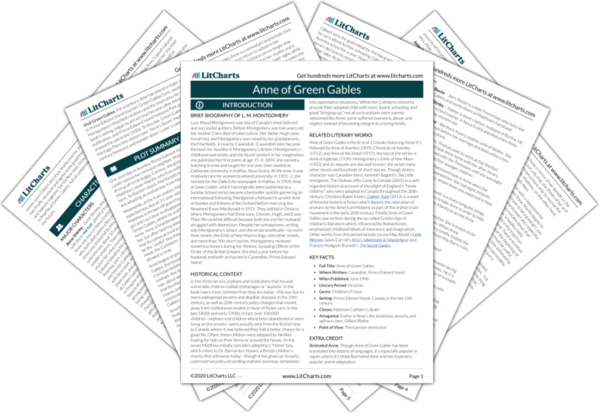Previous
Chapter 14: Anne’s Confession
|
Previous
Chapter 14: Anne’s Confession
|
Anne of Green Gables: Chapter 15: A Tempest in the School Teapot Summary & Analysis |
Next
Chapter 16: Diana Is Invited to Tea, with Tragic Results
|


Upgrade to unlock the analysis and theme tracking for all of Anne of Green GablesAnne of Green Gables!
Get LitCharts A+